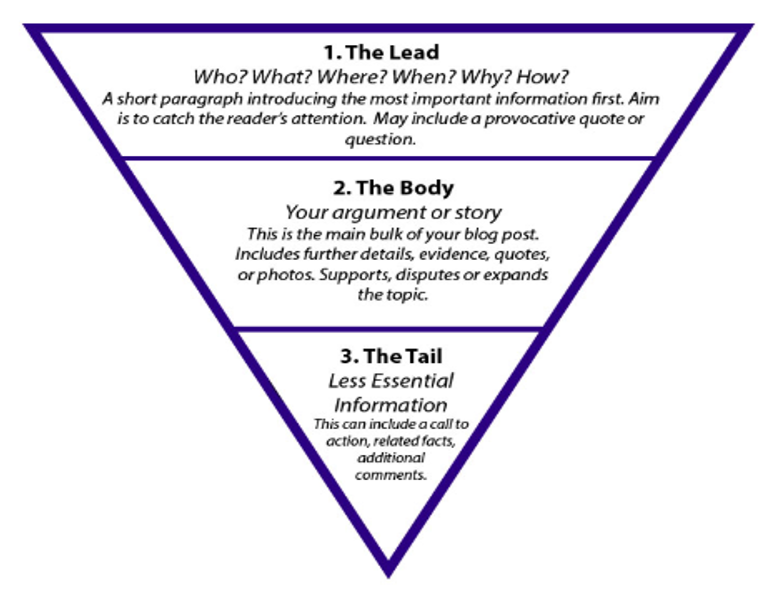How to write a blog

Ever fancied yourself as a blog writer? Do you have something interesting to share? These simple, top tips will enable you to turn your idea into an eye-catching blog in no time.
- Throughout the writing process, keep in mind the intended audience – they may not be familiar with you, your organisation or even the particular area you wish to write about.
- Think about how you engage someone who has no experience with your subject matter. Ask yourself the following questions: Why is this important? What do I need to explain? How can I sustain their interest?
- Prospective articles should:
- include a catchy title
- have a conversational tone
- avoid jargon and dense language
- explain complex ideas where applicable
- A blog is not an abstract therefore the introductory paragraph needs to hook the reader into learning more about the topic.
- It is generally accepted that readers will probably not read to the end of the article. In which case it is best to put your key ideas upfront and the less important ones further down. To help effectively structure your article, follow the ‘inverted pyramid’ approach:

- Your article should be broken up with sub-headings where possible. These should be consistent in feel and clearly lead the reader to the ultimate destination promised in your title
- Be mindful of the pace and rhythm of your writing – keep sentences and paragraphs short, interspersed with delayed transitions to break up lengthy prose. Don’t be afraid to vary the pace and read your finished work aloud to check the flow
- Where relevant, make sure you reference any research or source material. This should ideally be placed as links within the article as opposed to a list of references at the end and try and avoid linking to content behind pay walls as this will just frustrate readers.
- The entire blog should ideally be no longer than 1,000 words
This blog represents the views of the individual, not SCiLAB or the Open University

Dr Jacqueline Baxter
Dr Jacqueline Baxter is Associate Professor in Public Policy and Management and Director for the Centre of Innovation in Online Business and Legal Education (SCiLAB). She is Principal Fellow of The Higher Education Academy, Fellow of The Academy of Social Sciences and Elected Council Member of Belmas. She has been Editor in Chief of the Sage Journal Management in Education (MiE) for 4 years. Her current funded research projects examine the interrelationship between trust, accountability and capacity in improving learning outcomes; and the strategic management of online learning in secondary schools during and beyond Covid19. Dr Baxter is based in the department of Public Leadership and Social Enterprise at The Open University Business School.

